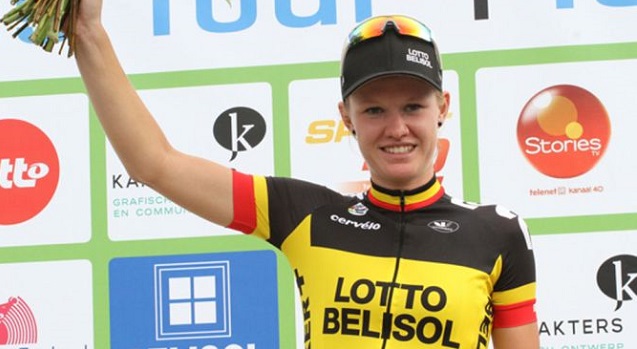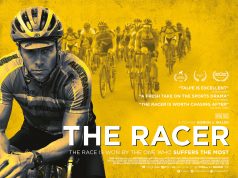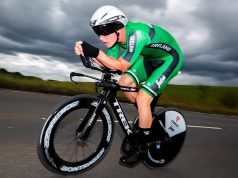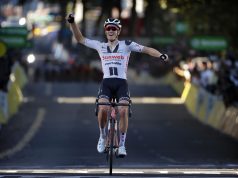Belgian champion Jolien D’hoore (24) has spoken to Het Nieuwsblad about problems she witnesses in the peloton with anorexia.
“I may be a professional cyclist,” she says, “but I’m not on the scales every day. As a sprinter, I have to watch my weight, but if I weigh a kilo or two extra, that is not a disaster. What adds on during the off-season, comes off again. And let’s be honest, what’s two kilos? Unfortunately, not all of my colleagues in the peloton think that way. I think there’s a new problem which worries me, anorexia.”
“I see some girls, fellow riders, starve so that they can fly up hills or mountains. But after the hill, they are completely exhausted. You can see them struggling to ride anymore. How could it be otherwise though, without any fuel and with barely forty kilos on the bike?”
“Eat a waffle,” the team management tells them. “They take the waffle, tear open the package, put it on their lips but they don’t bite. When nobody is looking, they throw away the waffle, but they hold onto the empty wrapper as evidence.”
“At breakfast, I see the same thing happening. I see them hide oatmeal under a napkin. They take fruit “to eat later on.” There are days that I can’t stand it. I try to start a conversation with one of them, but as soon I start talking about diet or weight, they close up. “A problem, me? Don’t make me laugh,” they respond.
D’Hoore feels that it’s something that needs to be monitored. “To help prevent this problem, would it better to keep the personal data of the riders in addition to traditional doping controls? I’m thinking of weekly or monthly weight checks, measurements of body fat, you name it. It is a small effort of the organisations, but for the girls it could offer salvation. I hope something is done before an accident happens.”

